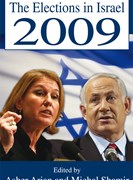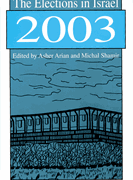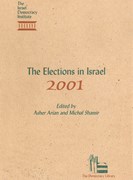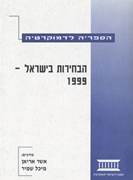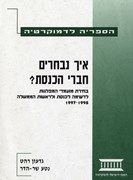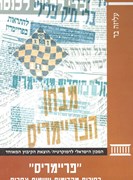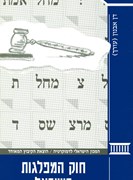

Publications Regarding primaries
Articles

3 Comments on the Labor Party Leadership Primaries
Written By: Prof. Ofer Kenig
Merav Michaeli just became the first Labor leader to win reelection since the party adopted the ‘primaries’ system in 1992. IDI expert Prof. Ofer Kenig presents three pertinent insights on the state of democracy in the party founded by the leaders who established Israel.
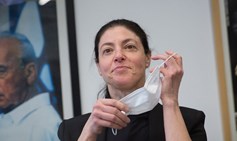
The Labor Party Primary Elections
Written By: Prof. Ofer Kenig
Labor was the only political party to elect its chair and candidates for the Knesset in primary elections consecutively since 1992 – including in the 2021 election. While its membership is dropping, this is consistent with ongoing trends in most Western democracies.
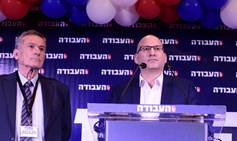
Give Credit to the Most Democratic Party in Israel
Written By: Prof. Gideon Rahat, Prof. Ofer Kenig
Long ridiculed, Labor is one of the few parties that meet stringent standards on campaign finance and transparency
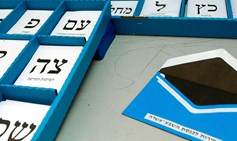
Israel Should Adopt Open-Primaries System on Election Day
The Israel Democracy Institute, the Kohelet Forum, Israel 2050, The National Union of Israeli Students, and the Israel Leadership Forum have joined together to call for the implementation of a "primaries on Election Day" system in Israel. This approach is often referred to among academics as the "semi-open ballot"

Primary Concern
Written By: Prof. Gideon Rahat
As Israeli political parties begin to formulate their lists of candidates for the upcoming election, Tipping Point hosts Prof. Gideon Rahat, (Israel Democracy Institute), and Dr. Emmanuel Navon (Kohelet Policy Forum) for a conversation on the pros and cons of the primary system.
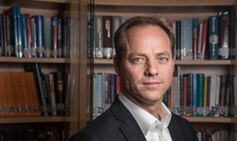
No Way to Run a Democracy
Written By: Yohanan Plesner
IDI President Yohanan Plesner argues that electoral reform will not suffice to fix the short-term-ism that is destroying Israel's capacity for long-term planning and policy execution; reform of the internal processes of the parties themselves is required. This op-ed first appeared in the Jerusalem Report.

Are Open Primaries the Answer?
Written By: Prof. Ofer Kenig
The volatile Israeli party system, together with several recent political developments, lately brought the idea of holding open leadership primaries to Israel. However, when considering the adoption of open primaries, one must also take into account their potential challenges and dangers.

What Just Happened? The 2016 U.S. Elections
Written By: Prof. Ofer Kenig
On Monday, February 1, 2016, the long and complex process in which the two major American parties choose their candidates for president began in Iowa. One of those two candidates will be the 45th President of the United States. What exactly are the presidential primaries? What makes them so long and complicated? What is their timetable and who, for now, are the main candidates?

The Intra-Party Democracy Index 2015
Written By: Prof. Gideon Rahat, Dr. Assaf Shapira
The findings of the Party Democracy Index, a tool designed to evaluate the level of democracy within political parties, which was designed by IDI's political reform research team. The findings have been released in advance of the 2015 Knesset elections.

The Labor Primaries: Will Shelly Yachimovich Break the Losing Streak?
Written By: Prof. Ofer Kenig
Will Shelly Yachimovich manage to succeed where others have failed and maintain her position as chair of the Labor Party for a second term? Dr. Ofer Kenig shares insights on the upcoming primaries for the party leadership.
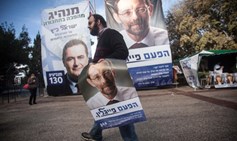
Primary Season in Israel
Written By: Prof. Ofer Kenig, Dr. Assaf Shapira
IDI researchers Dr. Ofer Kenig and Assaf Shapira review the different ways in which Israeli parties choose their candidates for the Knesset, while focusing on the three parties that had primary elections this year: Habayit Hayehudi, Likud, and the Labor Party.

Israel's Political Parties: Strengthen the Party, not the Cult of Personality
Written By: Prof. Gideon Rahat
Prof. Gideon Rahat, Director of Research of IDI's Political Reform project, recommends several changes that can help strengthen Israel's political parties and restore them to reasonable performance.

The Primary System in Israel: A Balance Sheet
Written By: Prof. Ofer Kenig
The frequent criticism of the Israeli primary system by politicians, the media, and academics often creates the impression that the system should be retired and replaced by a new one. In the article below, which was written prior to the Kadima primaries in March 2012, IDI Researcher Dr. Ofer Kenig surveys the arguments against primaries, analyzes the validity of the criticisms, and explores ways of addressing the weak points of the system.

Intra-Party Politics
Written By: Prof. Gideon Rahat
Party primaries, though a vital component of the Israeli electoral system, receive little attention from the media and the voting public. In an interview originally published prior to the Israeli general elections in 2006, Dr. Gideon Rahat of the Political Science Department at the Hebrew University in Jerusalem, today a Senior Researcher at IDI, discusses the candidate selection process within Israel's political parties and explores the pros and cons of local and international models.

